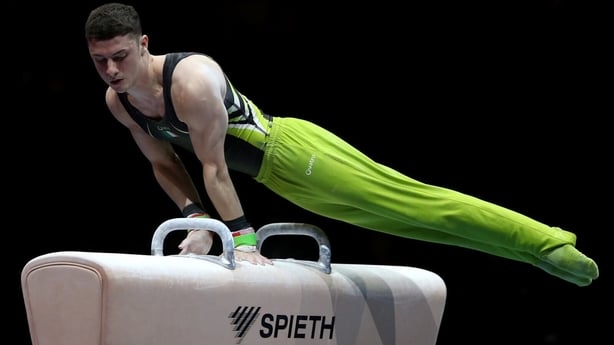
[ad_1]
Leading sports officials have called on the government to invest a portion of sugar and betting tax income in education and programmes that promote physical activity.
The Federation of Irish Sport wants €1.35m of the Sugar Sweetened Drinks Tax to be redirected in the budget towards a campaign to tackle obesity and promote participation.
They have called for €2.34m of Betting Duty to be used to educate people on the importance of sport and to protect vulnerable participants.
The federation has three other key ‘asks’ in its pre-budget submission; to provide a further tranche of sports resilience funding, to increase overall core funding and to move to a multi-annual system for sports funding.
“We believe that having a sugar tax alone is not actually going to change people’s behaviour,” said Mary O’Connor, CEO of the Federation of Irish Sport.
“If you look at international best practice, the UK brought in a sugar tax and they’re using it as a health intervention by increasing PE school hours, for breakfast clubs and so on. We’d love to explore that with government because we feel that bringing in a sugar tax is one thing but it’s not actually going to be an intervention.
“The intervention is where the sport and physical activity sector can assist and we’re looking for 4.5% of the sugar tax to actually drive participative programmes in schools and after school, maybe young kids and young teenagers who don’t ordinarily participate in sport.
“The betting tax is a little different. Two budgets ago, the government increased the betting levy from 1% to 2%. We believe in a fair return for sport and what we would like to see is 4.5% of betting tax being put towards education programmes around gambling and problem gambling. And also to create grassroots programmes, diversion programmes, to give people the opportunity to be physically active and to allow them to maybe visit after school clubs where they can focus on numeracy and literary skills.”
Sinead McNulty, CEO of the Camogie Association, supports the five asks and says the sugar task suggestion makes sense.
“It’s really about using the funding to create that connection between people’s awareness of the issue and then actually getting them out and connecting them with their sports clubs and with physical activity,” said McNulty.

Graham Russell, head of Louth’s Local Sports Partnership believes the sugar and betting tax suggestions are a ‘no brainer’.
“The reason for those taxes is to improve the health of people but simply putting a tax on something doesn’t change people’s attitudes,” said Russell. “You need to go another couple of steps.”
The federation’s pre-budget submission also calls for ongoing resilience funding to help steer cash strapped clubs and organisations through the pandemic.
This is to be kept ‘totally separate’ from the long-term investment promised under the National Sports Policy of 2018 which targeted a doubling of sports funding over 10 years.
Ciaran Gallagher, CEO of Gymnastics Ireland, outlined why resilience funding is so badly needed.
“I’ll give you one example, Gymnastics Ireland has an enormous bank of equipment for our events, the equivalent of about eight 40-foot trucks,” said Gallagher. “We recently did an audit of our equipment which has been in our storage unit and essentially sitting idle for two years, since our last major event in November, 2019.
“Just from sitting idle there are all kinds of fixes required, from wooden panels to springs, all sorts. On the flip side, materials and labour have all gone up in cost. There are very clear areas where money is required to help us restart and get going again.
“We’re planning to restart our events programme from November. We run quite large events throughout the year and we’re looking at a cost increase of between 15 to 30 percent at each event. Again, that’s across everything from materials to suppliers to labour costs.”
Maintaining separate core funding and meeting the targets of the National Sports Policy, 2018-2027, are seen as vital too.
“The resilience funding is there to keep us going and to get us out of a hole and is really welcome but it doesn’t deliver the long-term sustainable growth and development that sporting organisations need,” said Camogie chief McNulty.
[ad_2]
Source link